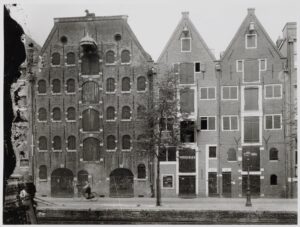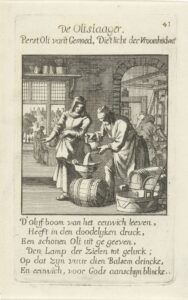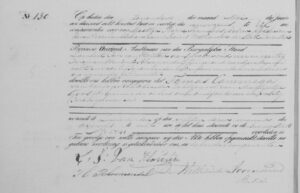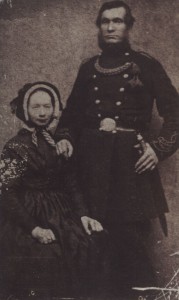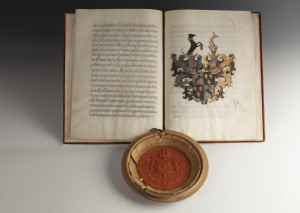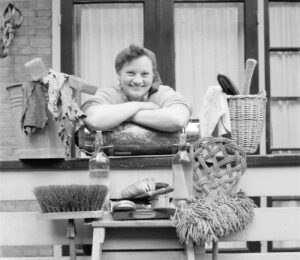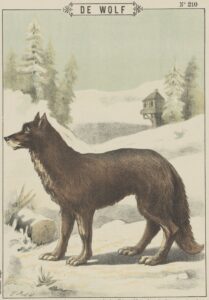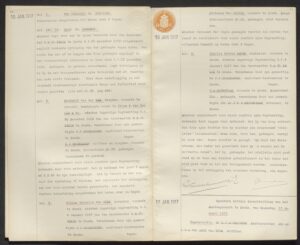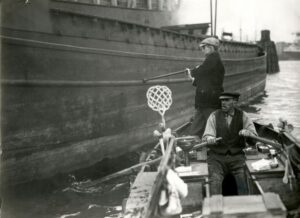A pakhuis is a warehouse. Pakhuizen were typically owned or rented by merchants or craftsmen who stored their wares. You may come across the term in cadastral, court, or notarial records. You may also see the occupation pakhuisknecht, a hired hand who worked in a warehouse. … [Read more...]
Dutch term – Olieslager
An olieslager is an oil miller, someone who works in a mill that presses vegetable oil, for example from rapeseed. … [Read more...]
Unusual death place case study: Thomas Cammenga
When Thomas Cammenga died on 5 May 1842, he did not die in his place of residence, Leeuwarden in Friesland, but in Deventer, Overijssel. His death record showed he died at the Bagijnenstraat.1 Deventer was 120 km/75 miles from Leeuwarden. Whenever we notice something odd like this, we have to ask ourselves why: Why did Thomas die in Deventer even though he lived in Leeuwarden? Let's go through some of the common reasons why somebody died away from home: Jail. Leeuwarden had its … [Read more...]
Dutch term – Gepensioneerd
Gepensioneerd literally means "pensioned," having a pension ("pensioen"). In general use, it often means retired. Before say 1940, most jobs did not come with a pension after retirement. Government jobs, including the military, did often come with a pension. The pensioner would need to meet requirements for age and number of years in service. … [Read more...]
Dutch term – Zegel
A zegel is a seal or stamp. In the Middle Ages, it became customary to attach a seal to charters as marks of identity and authority. Originally, seals would often show knights on horses. In the 1100s, this was gradually replaced by coats of arms. The following image shows a combination: Duke John II of Brabant is displayed as a knight on his horse, with his coat of arms on his shield, banner, and horse mantling. For examples of medieval seals, see the earliest generations in my Eleanor of … [Read more...]
Dutch term – Huisvrouw
Huisvrouw means housewife. Originally, the term was generically used for wife or goodwife. This could include women who had occupations, like midwives or laundresses. In the 1900s, the term shifted to mean a woman who did not work outside the home, including stay-at-home mothers. … [Read more...]
Dutch term – Begijn
A begijn is a beguine. Beguines were single women who lived in communities together. The beguine movement started in the 1100s and spread across Western Europe. Initially, beguines lived in houses together, but over time, they often lived in individual houses around a courtyard. Beguines were deeply religious women who often dedicated their lives to serving the community, like taking care of the ill or elderly. Unlike nuns, they did not have to renounce their personal possessions, but the … [Read more...]
Dutch term – Wolvenjager
A wolvenjager was a wolf hunter. Some towns offered a bounty for killed wolves, or employed a wolvenjager to kill wolves that were attacking lifestock. This was so successful that wolves were extinct in the Netherlands for more than a century. In recent years, they have found their way back to the Netherlands and several packs are now living in the country again. … [Read more...]
Dutch term – Audiëntieblad
An audiëntieblad (literally: audience sheet or audience paper) are the transcripts of court sessions, created by court clerks. Audiëntiebladen record the cases that were heard on a day, including continuances. Some include the verdicts, but sometimes the verdicts are kept in a different series. You can find audiëntiebladen in the series of court records of the local and district courts. Court records older than 75 years are typically kept at the regional historical centers in the provincial … [Read more...]
Dutch term – Parlevinker
A parlevinker is a trader who sells his wares, usually groceries, by boat. They can often be found in harbors. … [Read more...]
